ChallengeEU Meets with Partners at FHNW
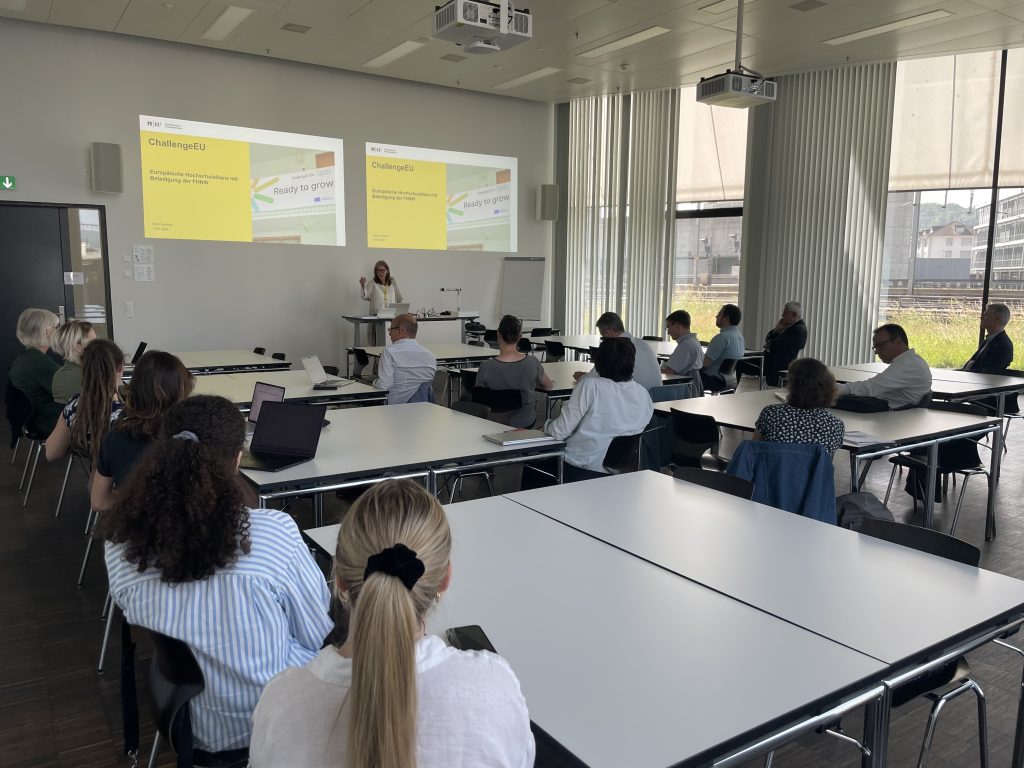
Strengthening regional partnerships is one of the key ways the ChallengeEU Alliance ensures that its work creates tangible impact in local communities across Europe. These partnerships bring the Alliance’s mission closer to reality by connecting higher education institutions with the people, institutions, and industries that shape their surrounding ecosystems. In June, this commitment took a meaningful step forward during a special meeting at Fachhochschule Nordwestschweiz (FHNW) in Switzerland. The ChallengeEU team, together with FHNW President Prof. Crispino Bergamaschi, had the pleasure of presenting the Alliance’s current initiatives to a group of associated partners from the Northwestern Switzerland region. The meeting sparked engaging discussions and laid the foundation for exciting future collaborations. Topics ranged from the evolving needs of students and early-career professionals, to major challenges and opportunities in digitalisation, robotics, artificial intelligence, and diversity. A particularly meaningful part of the exchange focused on the topic of neurodiversity and how schools and employers can better support individuals with diverse cognitive profiles. Initial ideas for joint projects and synergies are already emerging, and all participants shared a strong interest in shaping initiatives that are creative, sustainable, and truly future-oriented. This meeting clearly demonstrated the added value of close cooperation between universities and their regional environments — a core principle of the ChallengeEU Alliance. We are excited to continue these conversations and turn them into concrete, impactful action.
ChallengeEU at the European University Alliances Forum in Wrocław
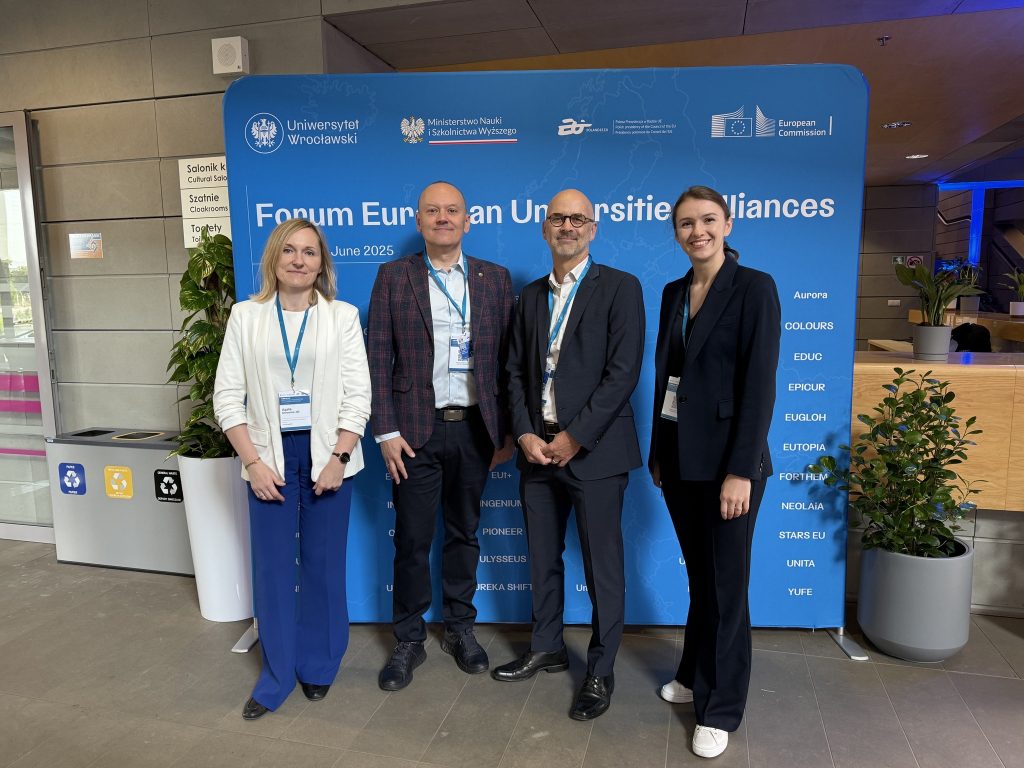
Representatives of the ChallengeEU Alliance are taking part in the 3rd European University Alliances Forum, held in Wrocław, Poland. The event is organized under the Polish Presidency of the Council of the European Union and serves as an important platform for exchange, dialogue, and knowledge sharing among university alliances and key stakeholders. Our delegation (Prof. Dr. Tobias Hagen, HSO’s Vice-Rector for Internationalization and Managing Director of ChallengeEU, Prof. Dr. Paweł Wielgosz, Vice-Deputy Director of ChallengeEU and Rector’s UWM representative for EUI, Sofiia Hecker, Secretary General and Agata Głowacka-Gil, Project Office Coordinator) will gain valuable insights and inspiration through meetings with representatives from other alliances across Europe. The Forum opened with welcome speeches by: Already during the first panel, it was emphasized that European University Alliances are at the very top of the European political agenda Key topics of the Forum included: Participation in the Forum marks another important step in strengthening ChallengeEU’s position within the European academic landscape – and a new opportunity to shape the future of higher education in Europe. >>> 3rd European University Alliances Forum: Summary
International Experience in Sustainable Gastronomy
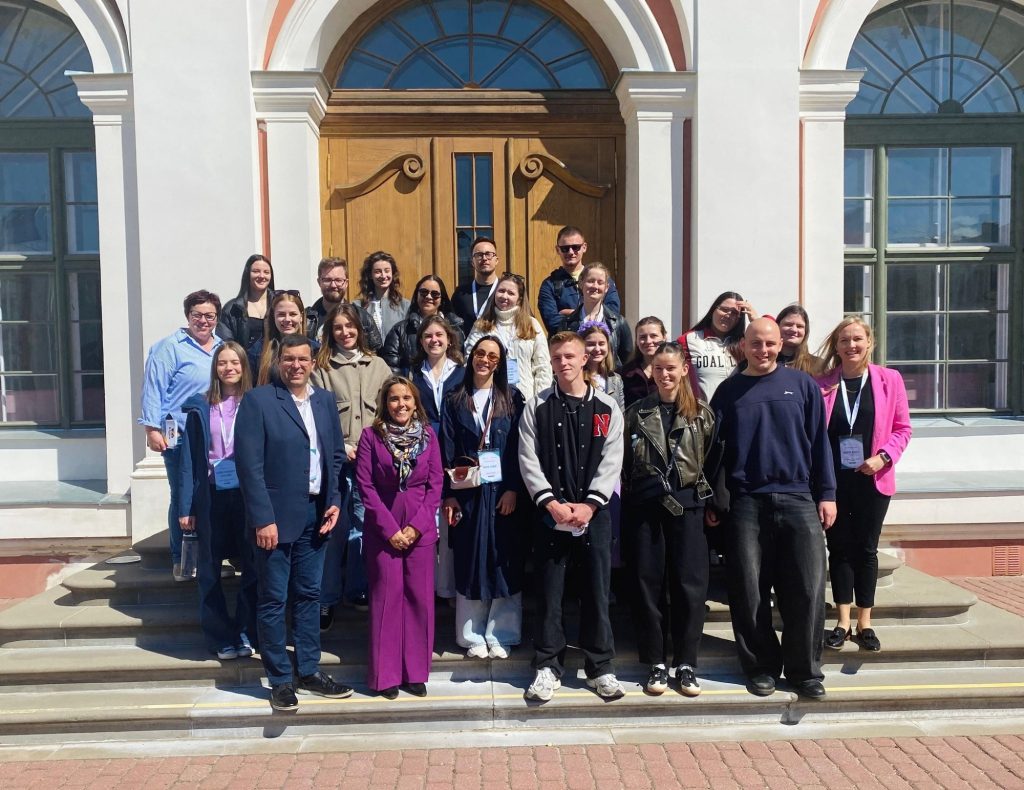
From May 13–17, the Latvia University of Life Sciences and Technologies (LBTU) hosted the Erasmus+ Blended Intensive Programme (BIP) course “Sustainable Restaurant Service”, bringing together students and academic staff from Latvia, Croatia, Portugal, Poland, and Bulgaria. This international course was a valuable opportunity to exchange knowledge and best practices in the field of sustainable gastronomy. The event was made even more impactful thanks to the active involvement of ChallengeEU alliance partners – Universidade Europeia and the University of Warmia and Mazury in Olsztyn, whose participation reinforced the spirit of international collaboration and innovation. The course was especially valuable thanks to the participation of the ChallengeEU partners – Universidade Europeia (Portugal) and Uniwersytet Warmińsko-Mazurski w Olsztynie (Poland) – strengthening international cooperation in sustainable gastronomy. Before arriving in Latvia, participants joined virtual sessions to explore sustainability in restaurant operations, AI solutions, and cross-border teamwork. During the on-site week, students explored:Sustainable restaurant managementGastronomic tourism & local cuisineStudy visits to producers & Michelin Guide restaurantsInspiring talks with chefs & hospitality professionals The course concluded with a practical workshop and a festive lunch showcasing sustainable food service. All participants received certificates — and a shared commitment to future collaboration in sustainable gastronomy. The organizers extend their congratulations to all partners, students, and lecturers who contributed to the success of this event.
Paving the Way for the Talent Academy: ChallengeEU at ISCBE 2025
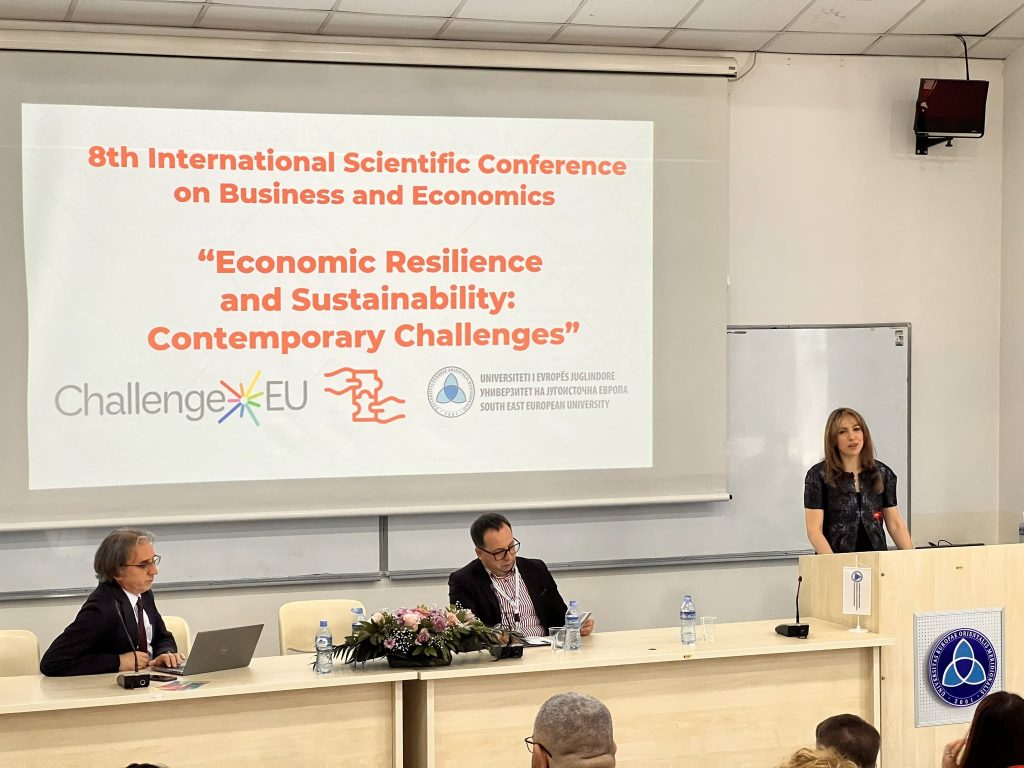
The 8th International Scientific Conference on Business and Economics (ISCBE), hosted by South East European University (SEEU), provided an excellent platform for international dialogue and innovation. As part of the event, a dedicated Networking Event brought together international students and industry experts to co-create the vision for the Talent Academy – one of the key initiatives within the ChallengeEU alliance. The session served as an inspiring forum for exchanging ideas and aligning academic ambition with practical realities. Participants emphasized the importance of strengthening the bridge between higher education and the labour market. Key outcomes included: 🔹 Aligning academic programs with real-world industry needs🔹 Focusing on hands-on learning, internships, and mentoring🔹 Enhancing cooperation between universities, businesses, and institutions🔹 Improving accessibility through flexible, inclusive learning opportunities – including online formats🔹 Promoting a culture of continuous improvement driven by feedback The insights gained during the event will play a crucial role in developing a future-ready Talent Academy that is inclusive, innovative, and closely connected to the evolving demands of the job market. The ChallengeEU Talent Academy will provide early-career researchers and lifelong learners with bothmethodological capacities and entrepreneurial skills, enabling them to undertake socially-relevant research and/oreffectively translate research findings. Reciprocal learning with and from stakeholders, as well as transdisciplinarylearning, will support and foster the open innovation processes within the Alliance.
Branding, or building identity. Workshops in Poland
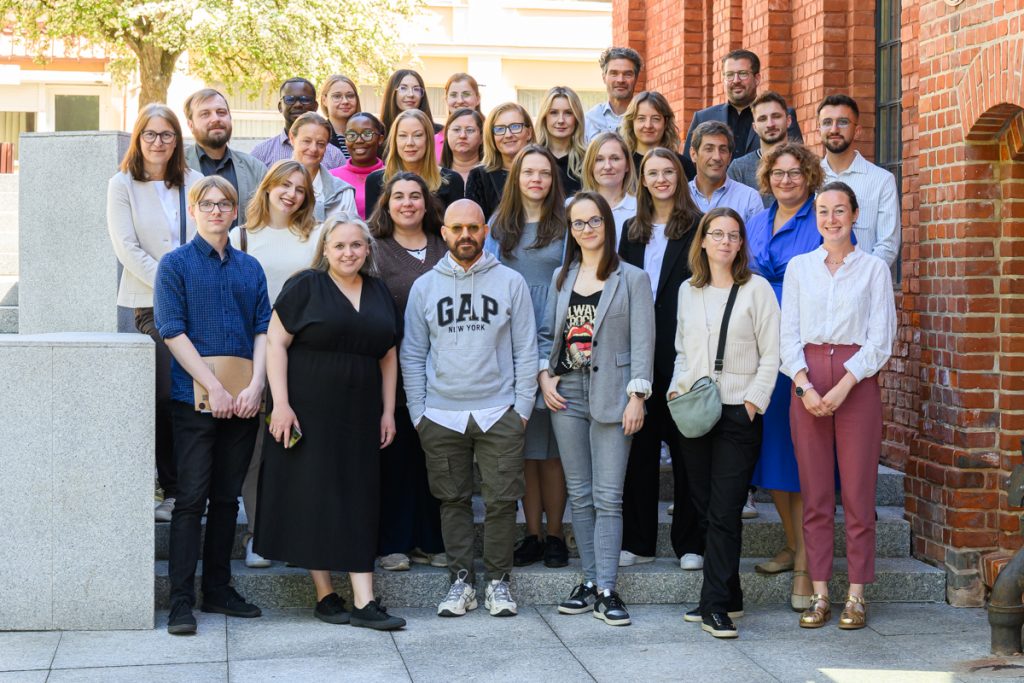
Representatives of the nine universities forming the ChallengeEU alliancemet at the University of Warmia and Mazury in Olsztyn (Poland) to discuss how to communicate and disseminate the alliance’s activities, which aim to open new opportunities for members of the academic community. To discuss the image of the ChallengeEU alliance and strategies for reaching various target audiences, representatives from all partner universities gathered in Olsztyn. Among them, the largest group consisted of those responsible for communication within the project. Also present were leaders of other work packages and the Secretary General of the alliance. All had the opportunity to connect with UWM staff involved in other parts of the project. The workshops were also attended by Prof. Paweł Wielgosz, UWM’s Representative for European Universities. Branding – Building the Identity of the Alliance The identity and future of ChallengeEU will be shaped by those who co-create it and seize the opportunities it offers. However, its image—especially in the eyes of individuals or companies potentially interested in collaborating with the universities—will also play a vital role and should be considered from the very beginning. Working on the alliance’s identity means also working on its visual communication and messaging—key elements that ChallengeEU will use to connect with others. Learning from One Another and Combining Our Strengths The second day was equally productive, featuring workshops and a working meeting held at the UWM Center for Marketing and Media. “A very important part of the visit was the opportunity for our guests to explore various units of UWM — including the editorial offices of the university media, the Office for International Cooperation, the Student Affairs Office, the Center for Cooperation with the Socio-Economic Environment, as well as selected faculties,” explains Dr. Marta Śliwa. “It was a great opportunity to present UWM’s educational offer and scientific potential, but also for our community to learn more about the ideas and objectives of the ChallengeEU alliance.” – “The meeting in Olsztyn was very highly rated by all participants, which is a great joy for us. We feel that thanks to this event, ChallengeEU has truly found its place within our university’s academic space.” Participants of the workshops in Kortowo also emphasized how meeting in person made them realize how strong their relationships have already become — and how positively this strengthens their collaboration. Together with all those involved in the project, they are gradually building the foundation for a shared, open, and inclusive campus.
Together for the European Cross-Border Region on the Upper Rhine
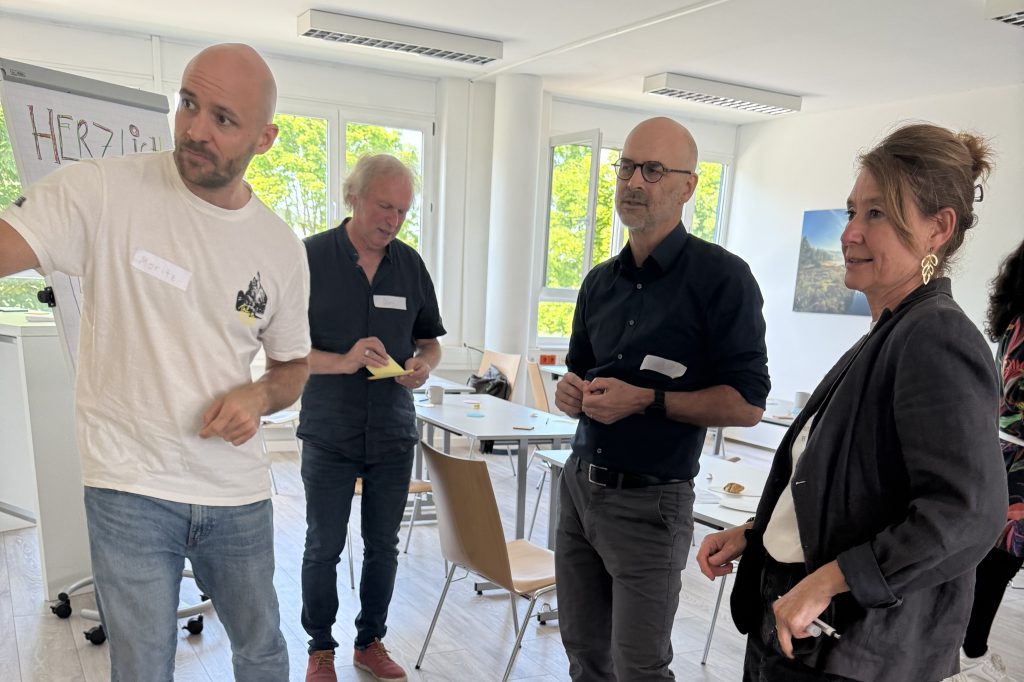
Thanks to the ChallengeEU project, Hochschule Offenburg (Offenburg University of Applied Sciences) played a leading role in bringing together representatives from business, academia, civil society, and different generations from across the Upper Rhine region. In an open and appreciative atmosphere, participants took the time to jointly identify key issues – particularly in the context of reimagining tourism. The aim of the activities undertaken by the members of the ChallengeEU alliance is to closely link research and innovation with regional stakeholders and, as a first step in a creative process, to collaboratively identify regional challenges. These identified challenges are then categorized into key thematic areas: Health & Wellbeing, Smart Digitalisation, and Sustainable Development. The ideas and solutions developed are subsequently integrated into further research and innovation activities to create sustainable and practical outcomes for the region. Students benefit especially from this European network: they have the opportunity to connect internationally and collaborate on innovative solutions. In addition to exciting projects and win-win situations for both regional businesses and students, valuable partnerships and friendships are also formed across national borders. Together, we are committed to a strong, innovative Europe and a sustainable future for the Upper Rhine region. The first workshop in the ChallengeEU Meetup Mission series was made possible thanks to the collaboration with Black Forest Innovation, an associate partner of the alliance, who hosted the participants at their premises.
Choose Europe for Science!
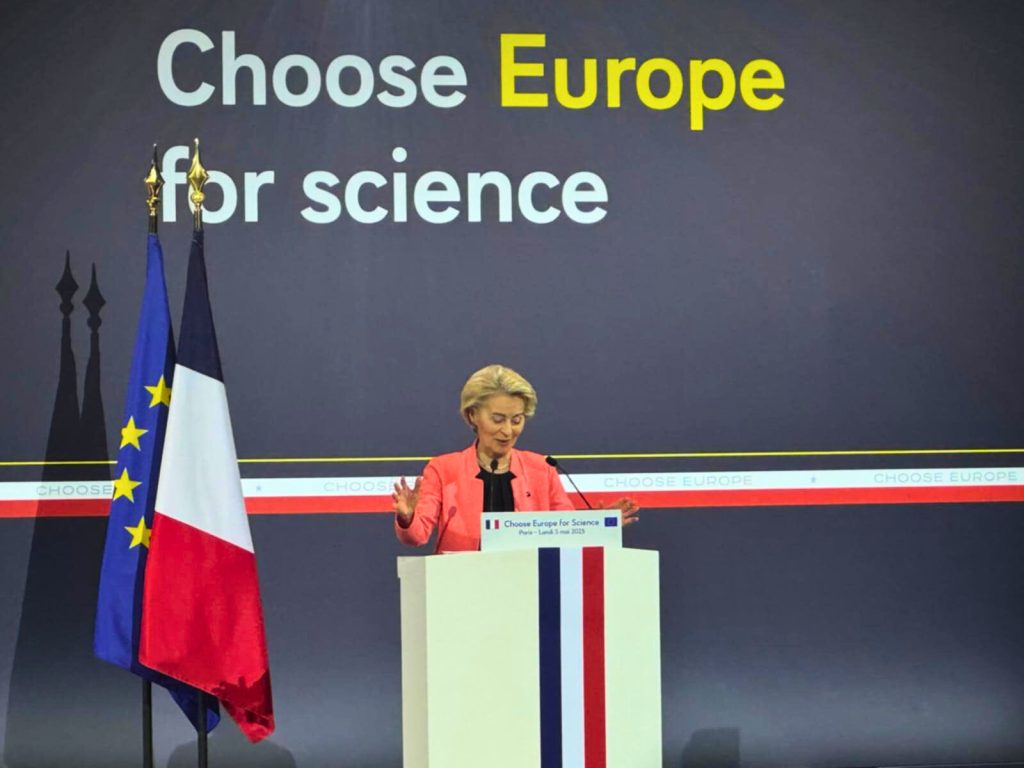
Representatives of the ChallengeEU Alliance, led by Prof. Jerzy Przyborowski, Rector of University of Warmia and Mazury in Olsztyn, and Prof. Irina Arhipova, Rector of Latvia University of Life Sciences and Technologies, took part in the “Choose Europe for Science” forum held in Paris. At the historic Sorbonne University, European Commission President Ursula von der Leyen announced that the European Union will launch a €500 million package for the years 2025–2027 aimed at “making Europe a magnet for researchers“. The funding will be directed to the European Research Council (ERC). European Commission plans to introduce legislation that will guarantee academic freedom as a fundamental right and simplify visa and residence procedures for science professionals. President von der Leyen further pledged increased support for early-career researchers, who will be able to benefit from additional funding through the pilot phase of the Choose Europe initiative under the Marie Skłodowska-Curie Actions. “We want Europe to continue to be at the forefront of fundamental research. We want Europe to be a leader in priority technologies from AI to quantum, from space, semiconductors and microelectronics to digital health, genomics and biotechnology. We want scientists, researchers, academics and highly skilled workers to choose Europe. And this is why today I am presenting the first elements of our Choose Europe Initiative” – said Ursula von der Leyen and she emphasized that “science has no passport, no gender, no ethnic origin, and no political affiliation“. French President Emmanuel Macron also announced that France will provide an additional €100 million from the France 2030 programme to attract researchers and make Europe a “safe haven” for science. “The message is simple. If you like freedom, come and help us to remain free, to do research here, to help us become better, to invest in our future” – said president Macron and added: “There can be no lasting democracy without free and open science“. Let us recall that a month ago, Ekaterina Zaharieva, the EU Commissioner for Startups, Research and Innovation spoke on a similar topic. She said then: “I believe that Europe can and should be the best place to do science and research in the world. A place that attracts and retains researchers, both international and European. In particular, those who are in search of a safe and supportive research environment. To ensure that Europe can be that place, we must enhance our pull factor. We must offer the best opportunities for scientists and researchers“. The Paris conference brought together European Commissioners, scientists, researchers, and ministers responsible for research from EU member states, as well as representatives from non-EU countries (Norway, the United Kingdom, and Switzerland).
LBTU hosts programme “Media Literacy for Future Leaders”
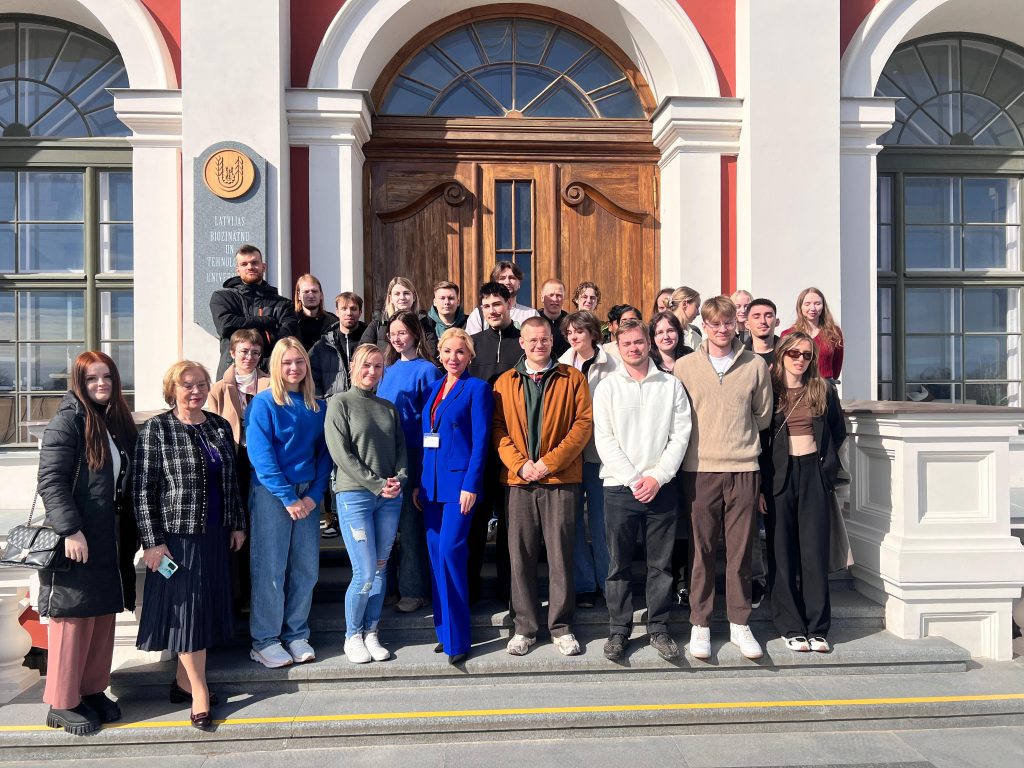
The Institute of Social and Humanitarian Sciences of the Faculty of Economics and Social Development (ESAF) at the Latvia University of Life Sciences and Technologies (LBTU) has successfully completed the Erasmus+ Blended Intensive Programme (BIP) project “Media Literacy for Future Leaders”. Among the participants were students and lecturers from ChallengeEU partner universities — Hochschule Offenburg, University of Warmia and Mazury in Olsztyn, and South East European University (SEEU) — joined by representatives of the Estonian University of Life Sciences. The program was led by an international team of lecturers, including five LBTU faculty members from ESAF and guest lecturers – professor Edlira Palloshi Disha from North Macedonia, media science professor Urszula Doliwa, and associate professor Magdalena Szydłowska from Poland. The programme focused on media literacy, critical thinking, and intercultural communication — equipping students with tools to analyze digital content, detect disinformation, and craft meaningful messages. Following an initial online seminar, participants gathered for a vibrant study week in Jelgava, featuring hands-on workshops, cultural visits to Riga and Rundāle Palace, and student presentations during the international conference “Students on Their Way to Science”. It was a great experience, as reflected in the words of one of the participants: “I would like to sincerely thank you for the wonderful experience during the Blended Intensive Programme in Latvia. It was an incredibly enriching opportunity, both academically and personally. I am truly grateful for the chance to participate, to meet inspiring peers, and to learn from outstanding professors. The organization and hospitality throughout the programme were exceptional. I truly appreciate all the efforts that made this an unforgettable experience”. >>> More information
ChallengeEU: The Beginning of a New Chapter!
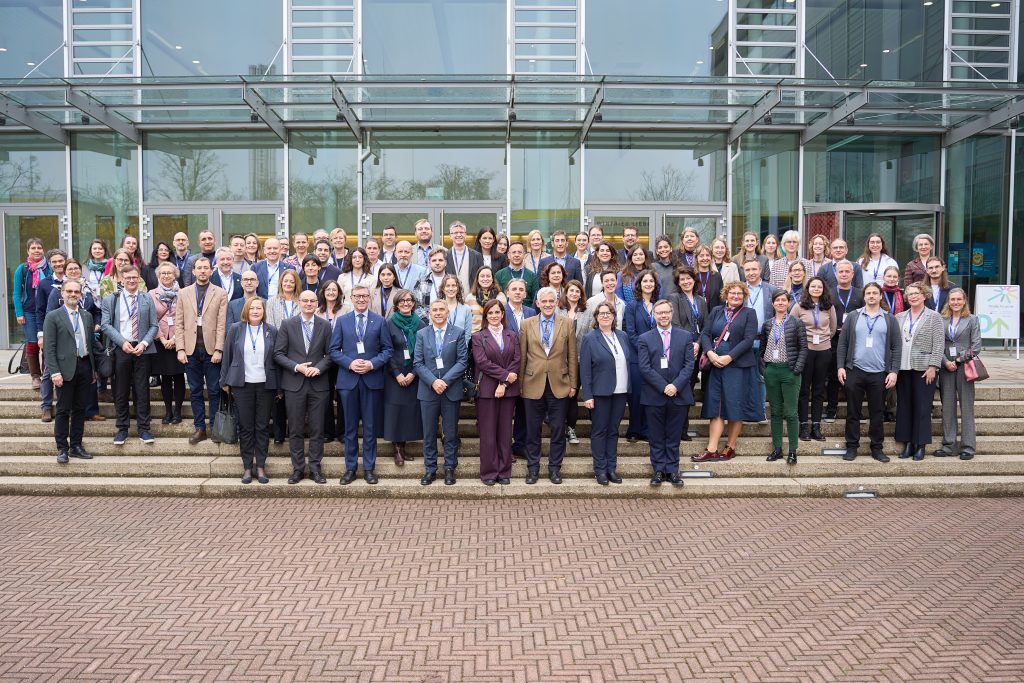
Nine European universities united in Offenburg on 12 March to sign the Consortium Agreement, officially launching the ChallengeEU Alliance. The alliance’s goals include increasing mobility for students, academic staff, and the scientific community, as well as enhancing the quality, integration, and competitiveness of European higher education The joint journey of nine European universities has been ongoing, but the meeting at Hochschule Offenburg (12-13 March) marks the official start of ChallengeEU. The alliance is part of the prestigious European Universities initiative, a European Commission programme aimed at supporting innovative cooperation between universities in the European Higher Education Area. ChallengeEU: A Partnership for Change The ChallengeEU alliance is formed by: Hochschule Offenburg (Germany, project coordinator), South East European University (North Macedonia), ECAM LaSalle (France), Mid Sweden University (Sweden), Universidade Europeia (Portugal), University of Warmia and Mazury in Olsztyn (Poland), Latvia University of Life Sciences and Technologies (Latvia), Universidad Europea de Valencia (Spain), Fachhochschule Nordwestschweiz FHNW (Switzerland, associated partner). The official representatives of universities signed the agreement launching the alliance. Rector Rosa María Sanchidrián Pardo from Valencia was unable to attend the meeting in Offenburg, but the document bearing her signature was sent by post. University authorities, researchers, administrative staff, and students will actively contribute to the alliance’s work. Together, they will establish a common European campus – an international hub for collaboration, knowledge exchange, and personal development. The alliance is creating solutions to allow academic community members to study and gain skills across multiple universities. Participants will also earn cultural and linguistic competencies, certified by credentials like micro-credential. Mission: Future-Ready Higher Education The launch of cooperation between universities from nine countries is a big step for the 83,000 students and 9,000 staff members of the academic community, as well as for the 25 million citizens living in the ChallengeEU region. The overarching aim of the project is hidden in its name: “Cultivating Holistic SustAinable CoLLaborations: ENGaging Excellence in European Universities”. The most important goals of the alliance are: By connecting universities, students and local stakeholders, the alliance members want to ensure that education responds to the challenges of today and the future and serves changes for the better. This is to be supported by cooperation, research and innovation. It is also worth noting that 80 associated partners are involved in the ChallengeEU project. They represent sectors such as science, business, public administration and civil society. This demonstrates that the alliance’s influence will extend far beyond university campuses. Kick-off Meeting in Offenburg The signing of the Consortium Agreement in Offenburg is accompanied by many meetings of the working and management teams. Representatives from all partner universities have gathered at Hochschule Offenburg, with many additional participants joining online. This event provides an opportunity to discuss the project’s vision and objectives while developing an action plan for the near future. Moreover, it serves as a key moment for integrating the people who will shape ChallengeEU’s success. ChallengeEU is not just an alliance of universities – it is a dynamic space for sharing experiences, fostering international competencies, and building a better future for students and society.
UWM Celebrated Joining the ChallengeEU Alliance
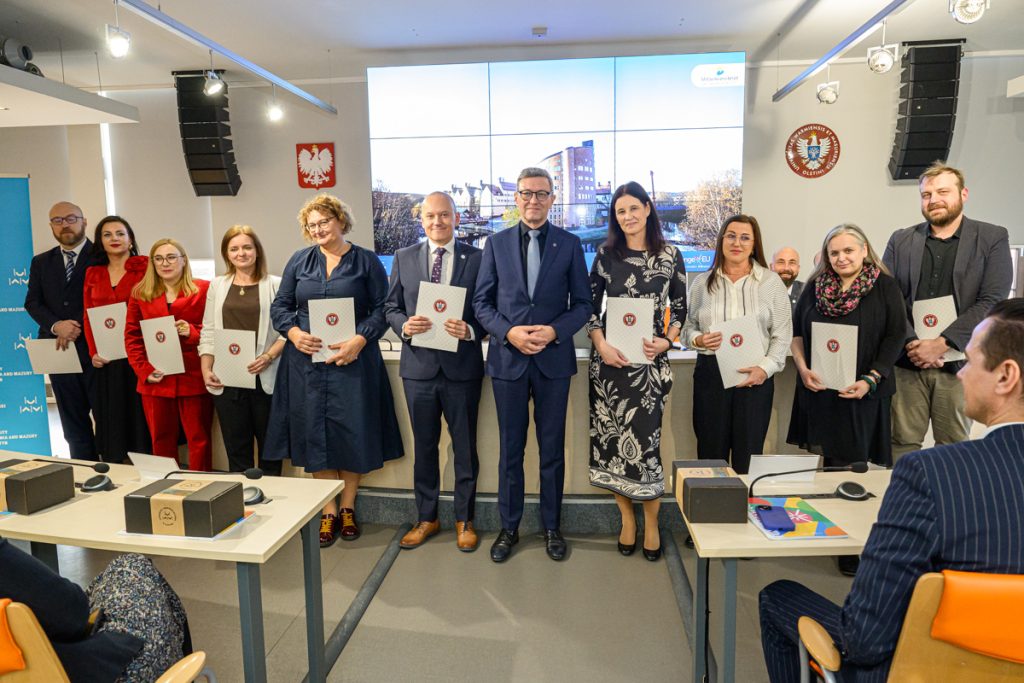
The University of Warmia and Mazury in Olsztyn (UWM) has officially joined the ChallengeEU alliance, marking a significant step in its international development. The official celebration took place on Wednesday, 5 March 2025, at the university’s main campus in Olsztyn. During the event, Prof. Jerzy Przyborowski, Rector of UWM, formally presented appointment certificates to the university team members engaged in the project. As he emphasized, participation in the ChallengeEU alliance represents a strategic opportunity not only for the university itself but also for the broader development of the region. The meeting served as an occasion to introduce the vision and objectives of ChallengeEU to the university community and regional stakeholders. Prof. Paweł Wielgosz, UWM’s Coordinator for European Universities, highlighted the several years of intensive preparations that led to the university’s inclusion in the alliance. He also underlined the significance of this achievement, noting that currently, fewer than 10 percent of higher education institutions in Europe are members of university alliances under the European Universities initiative. The event brought together representatives from local government, business sectors, and non-governmental organisations, who expressed their enthusiasm and support for this international academic collaboration. Joining ChallengeEU opens new paths for innovation, mobility, and excellence in education — and UWM is proud to be part of this shared European vision.



